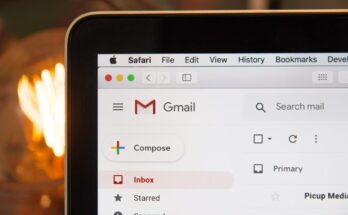If you’re reading this article then you’re already nailing it so far! You’ve applied for a job and impressed the employer so much in the first interview that they’ve invited you back for a second interview.
By this point, the company is seriously interested in hiring you, otherwise, they wouldn’t have invited you back. After the second interview, they’ll make a final decision based on how it goes. Of course, this depends on the company – some of them might have several interviews for one position, some will have just one, but the standard in most companies is 2 to 3 interviews.
The second interview is also your chance to clarify anything that you’re not sure about like the job conditions (including the salary!). So make sure you prepare plenty of questions in advance.
This guide will help you to prepare for your second interview and it will give you some tips on how to handle the nerves and boost your performance during the interview.
How to Prepare for Your Second Interview

Preparation is the key to nailing a second interview. Here are some key things you can do in the run-up to yours to maximize your chances of success.
Do your homework
Taking the time to properly research the company will put you in a strong position. It’ll show the employer that you’re a serious candidate and will allow you to ask some considered, intelligent questions. Go onto the company’s website and find out as much as you can.
Apart from researching the company on their website and in other sources (articles written by third parties, industry publications, YouTube, their social media profiles), research the interviewer as well. When interviewing, one of your goals is to create rapport with the interviewer and begin the cultivation of a relationship. Researching the interviewer can therefore give you insights to use during the course of your conversation. Research the person on LinkedIn or Google to see if there are any possible conversation points and common interests. Have they worked for the same companies or a competitor? Have they attended any professional conferences recently?
Finally, you need to thoroughly understand the position you are applying for. Prepare examples of how you have performed or would perform each aspect listed on the job description.Write down these points as preparation for the interview. I suggest crafting the examples on paper, rather than just thinking about them. This will help organize your thoughts. The first time you come up with your examples should not be during the actual interview. Write out and practice saying these points.
Predict the interview questions
Think through the questions they asked you in the first interview. What did they ask you? What didn’t they ask you? Think about things which you didn’t discuss in the first interview and the weaker answers you gave (which they might want to revisit). The more questions you predict correctly (and think of strong answers for), the more confident you’ll feel in the interview.
Of course, it’s impossible to predict all the questions they’ll ask you but if you can provide specific examples of how you’ve successfully performed tasks listed on the job description (remember about mentioning a tangible result at the end!), you should be able to handle any question thrown at you.
Get the agenda
Don’t get caught out by avoidable surprises! Sometimes second interviews can be a day long. Sometimes they include group interviews, activities, and lunches. Be ready for whatever’s coming and make sure you’re on the same page as the employer. There’s no harm asking your recruiter or whoever arranged your interview what the focus of the second interview is going to be.
Dress professionally
If in doubt, go smart. Even though more and more workplaces have a casual dress code, dress professionally unless you’re told otherwise. If they tell you to dress down, still go wearing smart-casual clothes.
It might be a good idea to have a look at any pictures of employees posted on their LinkedIn, Facebook or Instagram profiles (if they have them). You might be able to see what a typical dress code is like. If the dress code is very casual, it doesn’t mean you can interview in your T-shirt, but don’t wear a suit either.
Second Interview Tips
Here are some tips on how to succeed in a second interview. If you can prepare properly and keep the following points in mind, your chances of succeeding in this interview will skyrocket!.
Keep up your energy
Make a conscious effort to keep spirits high. Interviews can be long and tiring so if you’re feeling tired or fed up of answering questions, keep it to yourself! Smile and be enthusiastic throughout the whole process even if you’re asked the same questions.
Someone who is enthusiastic about the job/company will always come across better than someone who appears very low energy, even if they are more experienced
Know your resume by heart
Make sure you know the dates and the other information perfectly. They’ll ask you specific questions about your experience and qualifications, don’t make silly mistakes!
You need to be very familiar with each and every bullet on your resume. For each bullet on your CV/resume, write out the story or a few examples outlining how you performed or achieved that particular bullet. Be able to succinctly and articulately communicate the story behind each bullet.
Also, prepare stories about challenges, failures and difficult situations that are not on your resume. These types of questions always come up. Embrace this fact and be ready for those questions.
Don’t let your guard down
Don’t forget you’re always being evaluated even when you’re not being asked questions. You’re always being assessed, every time you’re introduced to someone, when you’re being shown around, and even when you speak to the receptionist on arrival. Make a positive impression on everyone!
Ask questions to each person you meet
Ask questions to each person you meet. Find out what they like about working there, how they’ve progressed, and the challenges they’ve faced. It helps if you can check out their LinkedIn profiles prior to the interview, so you can ask some relevant questions. Also, make it clear to each person why you’re the best fit for the position – without aggressively overselling yourself of course.
Follow-up communication
Send follow-up communication after your interview. Thank them for their time and the opportunity. To make an even better impression, try to personalize the message rather than just sending a generic one. Mention something that relates to the conversation you had with them and emphasize your interest in the role.
Examples of Questions to Ask in a Second Interview
At some stage in the second interview, they’ll ask you if you have any questions. Prepare specific questions when researching the company and make sure you ask a lot. Here are some generic questions you can ask in the second interview.
What are the company’s goals over the next few years?
What would you expect me to achieve in the first 6 months?
What are the main priorities of the role?
What is the most challenging part of this job?
How would you describe the company culture here?
What’s the organizational structure of the department?
What sort of management style would you say you have?
What is the next step in the hiring process?
If I get the job, when would you like me to start?
Can I give you additional references?
What do you like most about working for the company?




